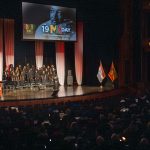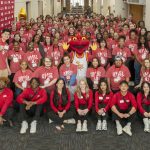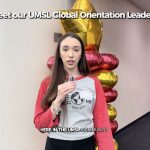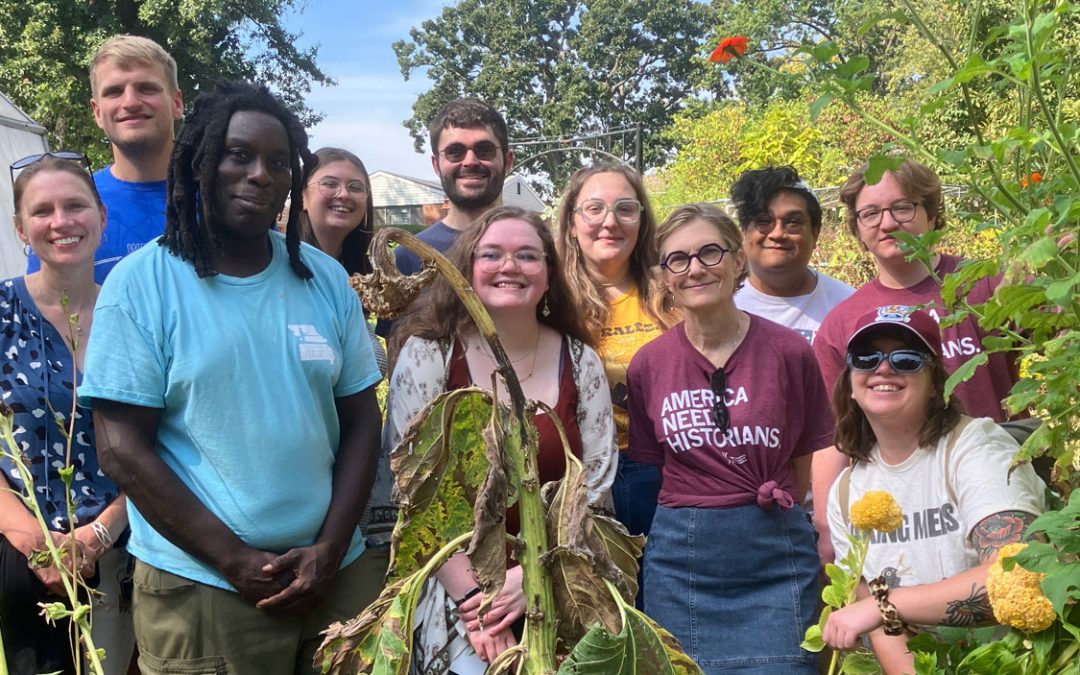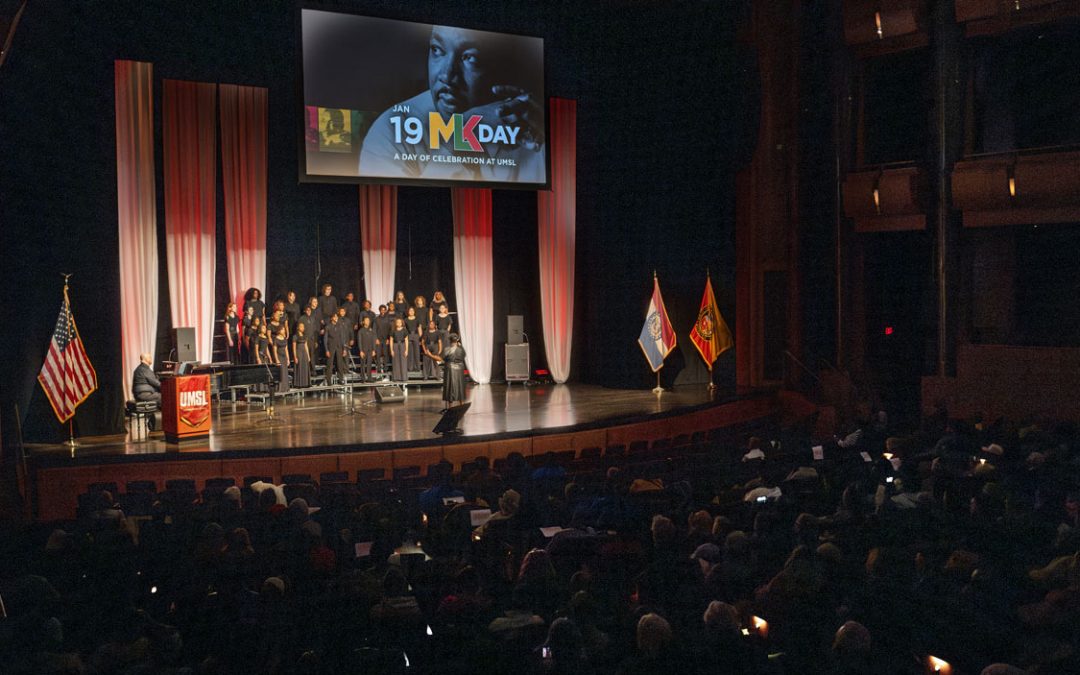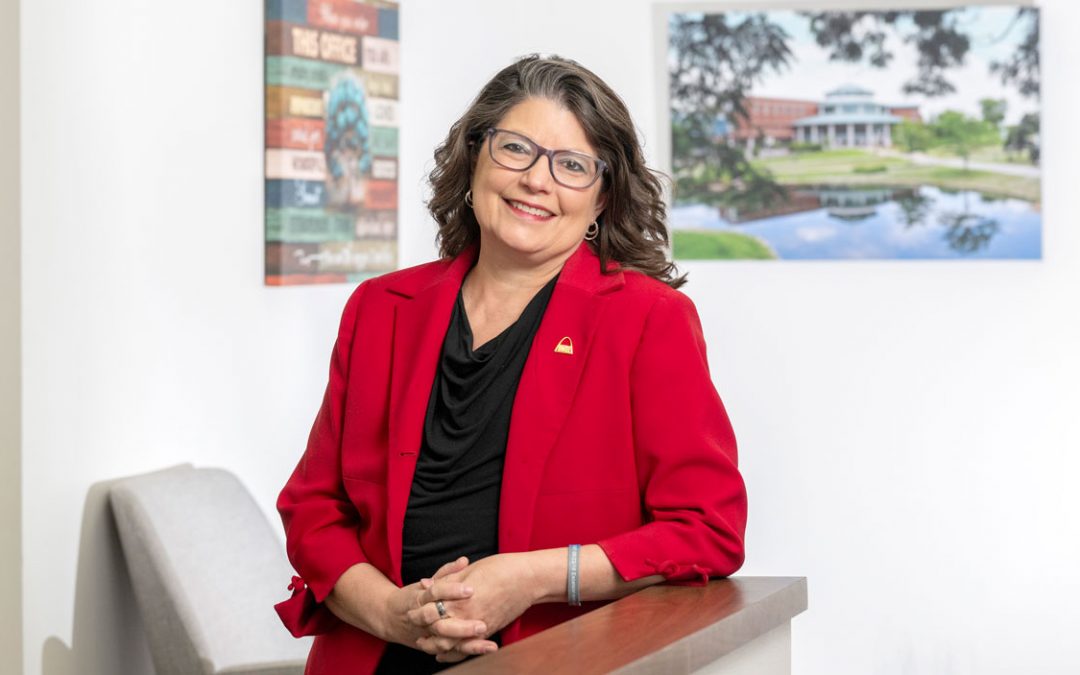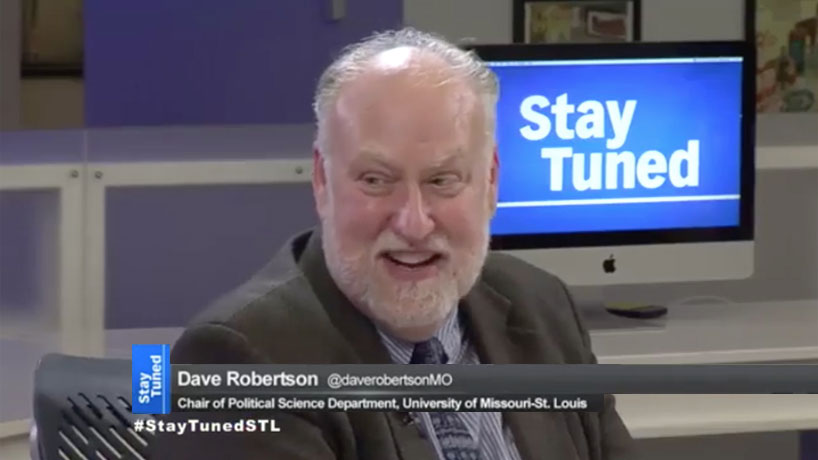
Dave Robertson, chair of the Department of Political Science, joined a panel on the weekly show “Stay Tuned” on the Nine Network to discuss the St. Louis mayoral race ahead of the March 7 primary election.
April 6 is the date when residents of St. Louis will go to the polls to elect the 46th mayor in the city’s history.
But given the stranglehold Democrats have had on the office since the 1940s, without even a viable Republican challenge since 1980, it seems likely the choice to succeed four-term Mayor Francis Slay will be unveiled with the results of the Democratic primary on March 7.
Dave Robertson, chair of the Department of Political Science at the University of Missouri–St. Louis, discussed the race Thursday night on the weekly show “Stay Tuned” on the Nine Network of Public Media. He joined host Casey Nolan and a panel that also included political reporters Jo Mannies of St. Louis Public Radio and Koran Addo of the St. Louis Post-Dispatch.
There was agreement among the panelists that the race has been a difficult one to handicap with seven Democratic candidates – not to mention three Republicans, a Libertarian and a Green Party candidate – all on primary ballots.
A poll last week from the Missouri Times showed Lyda Krewson capturing 33 percent support, good for a 16-point lead over fellow Alderman Lewis Reed, the board’s president. Alderman Antonio French, who recently received the endorsement of the St. Louis Post-Dispatch Editorial Board, was third in the poll at 15 percent support with city Treasurer Tishaura Jones fourth at 13 percent. No other candidate received double-digit support.
But Robertson balked at declaring Krewson or anyone else a favorite.
“I’d be reluctant to say that,” he said. “But I think it would confirm a sense that she had a lot of advantages going into this election. Money is part of it. She is the only really prominent and well-known white Democrat in this race.”
Race has long had an impact in St. Louis city politics, and it could again in an election where three prominent African American candidates could split support from African American residents who make up 46.5 percent of the city’s population.
“It is a thing,” Robertson said.
Even if it isn’t, there are still four candidates who can boast significant name recognition and support, making for a divided electorate.
“I would think that the winner would come ahead of 20 percent, but I think it’s going to be surprisingly close down the line,” Robertson said.
Krewson has the backing of Slay, but it could work against her, particularly against candidates such as French and Jones who are newer to city politics.
Mannies pointed to parallels with Hillary Clinton, whose status as an insider seemed to hurt her in last November’s presidential election against Donald Trump.
“The risk in this is that Slay’s endorsement – and Krewson generally is seen as a stay-the-course candidate like that national candidate, Hillary Clinton – and that could be a drag in an election where there’s a lot of people saying, ‘We need change,’ and they’re getting traction for that,” Robertson said.
Crime has been a galvanizing issue in the race with an increase in murders over the past two years, and several candidates have made calls to replace St. Louis Metropolitan Police Chief Sam Dotson.
There has also been significant discussion of the need to rebuild neighborhoods, especially in north St. Louis.
Robertson believes voters throughout the St. Louis region have a stake in the outcome of the race.
“The leadership of St. Louis City is critically important to the economic health, the jobs – all the things people care about nationally and in our region,” he said. “St. Louis City matters a whole lot to everybody in the region.
“The problem is it’s a little hard to see differences between the candidates that’s directly affecting people in St. Louis County, which is the merger of the city and county. I think the candidates are pretty wary of this generally, and there’s not much room between them on this issue.”
Before the conversation ended, panelists weighed in on the legacy of Slay, who will leave office as the city’s longest-serving mayor. He is sure to get credit for the re-development that has occurred downtown since he took office and his efforts to keep the National Geospatial-Intelligence Agency in St. Louis. But his detractors will likely say he didn’t do enough to improve some neighborhoods, especially ones outside the central corridor.
“That’s a classic issue in cities, and it’s not just St. Louis – Chicago, lots of other cities,” Robertson said. “Do you develop downtown and focus resources there or do you spread out development in neighborhoods across the city? Generally, the downtowns have a way of winning this.”
As for who will ultimately succeed Slay, Robertson declined to make a prediction. Consider him a little gun-shy in lieu of recent events.
“I am,” he said. “After November, I still am.”
Watch the full episode of “Stay Tuned” on the Nine Network of Public Media here.




